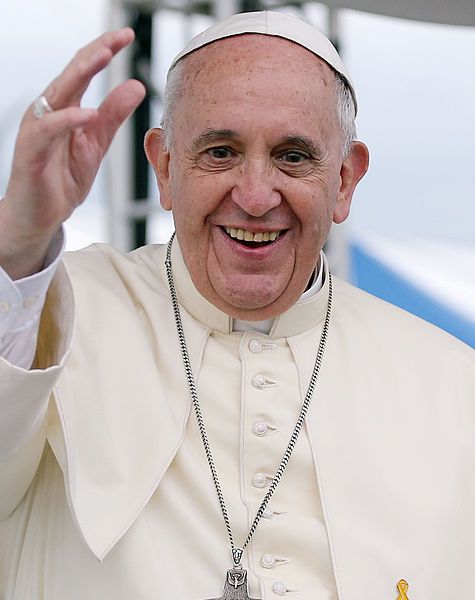Summarize this Article with:
Nelson Mandela Biography: A Legacy of Leadership, Courage, and Social Justice

Nelson Mandela, a towering figure in the history of humanity, remains an enduring symbol of resilience, justice, and leadership. As a global icon, Mandela’s life journey serves as an inspiration to millions around the world.
Born in South Africa, he experienced firsthand the oppressive grip of apartheid, which fueled his unwavering commitment to fighting for equality and freedom. From humble beginnings, Mandela emerged as a formidable leader, leading the charge against apartheid and becoming the first black president of South Africa.
His indomitable spirit and unwavering belief in justice propelled him through years of imprisonment, where he became a beacon of hope. In this article, we delve into the remarkable life of Nelson Mandela, tracing his early years, his courageous activism, and his enduring legacy as a symbol of resilience and reconciliation.
Early Life and Activism
Nelson Mandela’s journey toward becoming a legendary freedom fighter began in the rural landscapes of South Africa. Born in 1918 into the Madiba clan, Mandela grew up in a world marked by racial segregation and inequality. Despite the limitations imposed by apartheid, his childhood was steeped in a rich cultural heritage and a strong sense of community.
Mandela witnessed the injustices of a system that treated people differently based on the color of their skin. These experiences ignited his passion for justice and equality. As a young man, Mandela became increasingly involved in anti-apartheid activism, joining forces with like-minded individuals who shared his vision of a free and equal South Africa.
In the 1940s, Mandela played a pivotal role in the formation of the African National Congress (ANC), a political organization dedicated to challenging apartheid and advocating for the rights of black South Africans. Through his activism, Mandela emerged as a powerful voice, tirelessly speaking out against the oppressive regime and fighting for the rights of his people.
Mandela’s early activism set the stage for the remarkable journey that lay ahead, as he would go on to become one of the most influential figures in the struggle against apartheid. His unwavering commitment to justice and his tireless efforts to dismantle the oppressive system would shape the course of his life and inspire generations to come.
Imprisonment and Resistance
Nelson Mandela’s unwavering commitment to the fight against apartheid led him down a path of immense sacrifice and personal struggle. In 1964, Mandela was sentenced to life imprisonment for his anti-apartheid activities and was incarcerated on the infamous Robben Island.
Despite the harsh conditions and isolation of prison life, Mandela’s spirit remained unbroken. He transformed the confines of his prison cell into a fortress of resistance and a symbol of hope. Mandela’s leadership qualities shone through as he organized fellow prisoners, promoting education, cultural activities, and political discussions.
Mandela’s resilience during his long years of imprisonment became a beacon of inspiration for his supporters and the international community. His cause garnered global attention, with people around the world rallying behind the call for his release and an end to apartheid. Mandela’s imprisonment transformed him into a powerful symbol of the struggle for justice and equality.
Mandela’s unwavering determination and steadfast belief in the righteousness of his cause fueled the resistance movement outside prison walls. He became a symbol of hope and a source of strength for his fellow activists, and his leadership from behind bars played a pivotal role in shaping the course of the anti-apartheid movement.
Mandela’s imprisonment not only tested his resolve but also galvanized support for the struggle against apartheid. The global outcry for his release turned him into an international symbol of resistance and garnered widespread solidarity. Mandela’s time in prison was a testament to his unwavering commitment to his ideals and his ability to inspire change even from within the confines of a prison cell.
Political Career and Leadership
Nelson Mandela’s political career is a testament to his unwavering commitment to justice, equality, and the betterment of South Africa. After his release from prison in 1990, Mandela played a pivotal role in the dismantling of apartheid and the transition to democracy.
With his remarkable leadership skills and ability to unite people from diverse backgrounds, Mandela became the face of the African National Congress (ANC) and led the party to victory in the historic 1994 elections. As South Africa’s first black president, Mandela embarked on a mission to heal the wounds of apartheid and build a nation based on inclusivity and reconciliation.
Mandela’s presidency was marked by his tireless efforts to bridge the racial divide and promote unity among all South Africans. Through the Truth and Reconciliation Commission, he sought to address the atrocities of the past while fostering a spirit of forgiveness and healing. Mandela understood that true progress could only be achieved through dialogue, understanding, and a commitment to social justice.
His leadership style, characterized by humility, compassion, and unwavering integrity, earned him respect and admiration both at home and abroad. Mandela’s ability to navigate the complexities of the political landscape and inspire unity among diverse factions was instrumental in steering South Africa toward a brighter future.
Nelson Mandela’s legacy as a visionary and transformative leader extends far beyond his presidency. His lifelong dedication to human rights, equality, and social justice continues to inspire generations around the world.
Mandela’s leadership serves as a powerful reminder of the indomitable human spirit and the capacity to bring about meaningful change through perseverance, compassion, and the unwavering belief in the inherent dignity of every individual. His impact on South Africa and the world at large is a testament to his extraordinary leadership and his unwavering commitment to a better future for all.
Mandela’s Contributions to Society
Nelson Mandela’s contributions to society extend far beyond his political career and presidency. He dedicated his life to the pursuit of human rights, social justice, and the betterment of communities both in South Africa and around the world.
One of Mandela’s significant contributions was the establishment of the Nelson Mandela Foundation. Through this organization, he aimed to continue his lifelong work of promoting dialogue, reconciliation, and social cohesion. The foundation focuses on various areas, including education, health, and rural development, with the overarching goal of empowering individuals and communities to overcome the challenges they face.
Mandela remained actively involved in numerous initiatives aimed at improving lives and advocating for social change. He lent his voice and support to causes such as HIV/AIDS awareness, children’s rights, and poverty alleviation. Mandela’s influence as a global icon provided him with a platform to amplify the voices of the marginalized and oppressed, advocating for their rights and dignity.
Mandela’s impact on the world stage cannot be overstated. His unwavering commitment to justice and equality inspired people from all walks of life to stand up against injustice and fight for a more inclusive society. His tireless efforts to promote peace and reconciliation earned him the admiration and respect of leaders and individuals worldwide.
Mandela taught us the power of forgiveness, compassion, and perseverance. He showed that transformation and positive change are possible, even in the face of adversity. Mandela’s contributions to society continue to resonate, inspiring individuals and organizations to strive for a more just and equitable world.
Nelson Mandela’s legacy is one of courage, resilience, and unwavering commitment to the values of equality and justice. His contributions to society, both during his presidency and throughout his life, serve as a beacon of hope and a call to action for all those who believe in the power of humanity to create a better world.
Mandela’s Legacy and Inspirational Quotes
Nelson Mandela’s legacy as an iconic leader and advocate for justice continues to resonate, inspiring generations to stand up for what is right and work towards a more inclusive society. His remarkable journey from prisoner to president left an indelible mark on the world, reminding us of the power of forgiveness, reconciliation, and the pursuit of equality.
Mandela’s leadership during South Africa’s transition from apartheid to democracy showcased his unwavering commitment to unity and social change. His ability to rise above bitterness and seek reconciliation demonstrated the transformative power of forgiveness. Mandela’s legacy is a testament to the belief that even the most deep-rooted divisions can be healed through dialogue and understanding.
His words continue to inspire and guide us. Mandela’s quotes are a source of wisdom and motivation, encapsulating his vision for a better world. “Education is the most powerful weapon which you can use to change the world,” he famously said, emphasizing the role of education in breaking the cycle of poverty and empowering individuals to create positive change.
Another iconic quote by Mandela reminds us of the importance of unity and collective action: “It always seems impossible until it’s done.” These words encapsulate his belief in the power of determination and perseverance, inspiring us to overcome seemingly insurmountable challenges and strive for a better future.
Mandela’s legacy and inspirational quotes continue to guide us in our pursuit of justice, equality, and compassion. His words remind us that the fight for social justice is an ongoing journey that requires the courage to challenge the status quo and the belief that change is possible.
The relevance of Mandela’s words transcends time and borders. They serve as a call to action for individuals, communities, and leaders worldwide, urging us to confront injustice, bridge divides and work towards a world where everyone is treated with dignity and respect.
Nelson Mandela’s legacy is one of resilience, compassion, and a steadfast belief in the power of humanity. His inspirational quotes serve as guiding principles, reminding us that we all can make a difference and create a more just and equitable world. As we reflect on his life and words, we are inspired to carry forward his vision of a society built on the pillars of equality, freedom, and love.
Conclusion
Nelson Mandela’s life and achievements have left an indelible mark on the world, inspiring generations to strive for justice, equality, and reconciliation. From his early activism to his presidency, Mandela’s unwavering commitment to freedom and social change has made him an iconic figure.
His legacy teaches us the power of forgiveness, unity, and the pursuit of a better society. Mandela’s resilience in the face of adversity and his ability to bridge divides serve as timeless lessons for us all. His wisdom and inspirational quotes continue to guide us, reminding us of the importance of education, perseverance, and collective action.
As we reflect on Mandela’s remarkable journey, we are reminded of our responsibility to uphold his values and principles in the ongoing fight for a more just and inclusive world. Mandela’s legacy will forever inspire us to embrace compassion, challenge injustice, and build bridges of understanding.
Hey kids, how much did you like Nelson Mandela Biography: A Legacy of Leadership, Courage, and Social Justice? Please share your view in the comment box. Also, please share this story with your friends on social media so they can also enjoy it, and for more such biography, please bookmark storiespub.com.
Suggested Article –
- Essay on Child Labor for Students and Children
- Essay on My School for Students
- Essay on Newspaper
- Tree Essay for Students and Children
- Essay on Elephant for Students and Children in English?
- Nelson Mandela Biography
Nelson Mandela FAQs
What was Nelson Mandela's role in the anti-apartheid movement?
Nelson Mandela was a prominent leader and key figure in the anti-apartheid movement in South Africa. He fought against the institutionalized racial segregation and discrimination enforced by the apartheid regime.
How long was Nelson Mandela imprisoned?
Nelson Mandela was imprisoned for 27 years, from 1962 to 1990, primarily on Robben Island. His imprisonment became a symbol of the struggle against apartheid and garnered international attention and support.
What did Nelson Mandela achieve as the President of South Africa?
As the President of South Africa from 1994 to 1999, Nelson Mandela played a crucial role in dismantling apartheid and promoting reconciliation. He introduced policies to address social inequality, improve access to healthcare and education, and foster national unity.
What is Nelson Mandela's most famous quote?
One of Nelson Mandela's most famous quotes is: "Education is the most powerful weapon which you can use to change the world." It reflects his belief in the transformative power of education and the importance of knowledge in creating a better society.
What is the Nelson Mandela Foundation?
The Nelson Mandela Foundation is a non-profit organization established by Nelson Mandela in 1999. It focuses on promoting Mandela's legacy, supporting humanitarian causes, and advancing dialogue and social justice initiatives.














